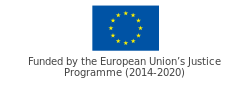
Microsite ProCam
Objectives
The main objective of this project is to fill this gap in knowledge and trust and, in particular, to:
(A) Examine the link between audiovisual recording and improved procedural rights protection for vulnerable suspects and accused persons protected under EU Law.
(B) Identify and share examples of good practice via dissemination of research materials.
(C) Understand why some states are reluctant to introduce audiovisual recording and, where possible, to provide constructive, evidence-based responses while providing state officials with personal experience of other states where recording of interrogations is widespread.
(D) Analyse the law and practice of all 28 EU Member States on audiovisual recording of interrogations with special focus on the interrogation of children, being one of the most vulnerable groups. Separate and more detailed analysis of the 5 Member States represented by the Partners will be carried out.
The project will seek to answer the following questions:
(A) Are interrogations of vulnerable suspects audio-visually recorded across the EU?
(B) Who are considered vulnerable suspects needing such recording?
(C) Are such recordings being made available to the suspect or accused person in a timely fashion (e.g. to allow them to challenge the detention)?
(D) What barriers exist to the universal use of audio-visually recording to vulnerable suspects and how might those barriers be removed or reduced?
(E) Has recorded testimony been successfully used to dispel concerns about whether suspects or accused persons understand their rights?
(F) Has recorded testimony been successfully used to dispel concerns more generally about the interview and to avoid duplication of questioning of vulnerable suspects?
(G) Is future EU action needed on this issue and what might that action look like?
